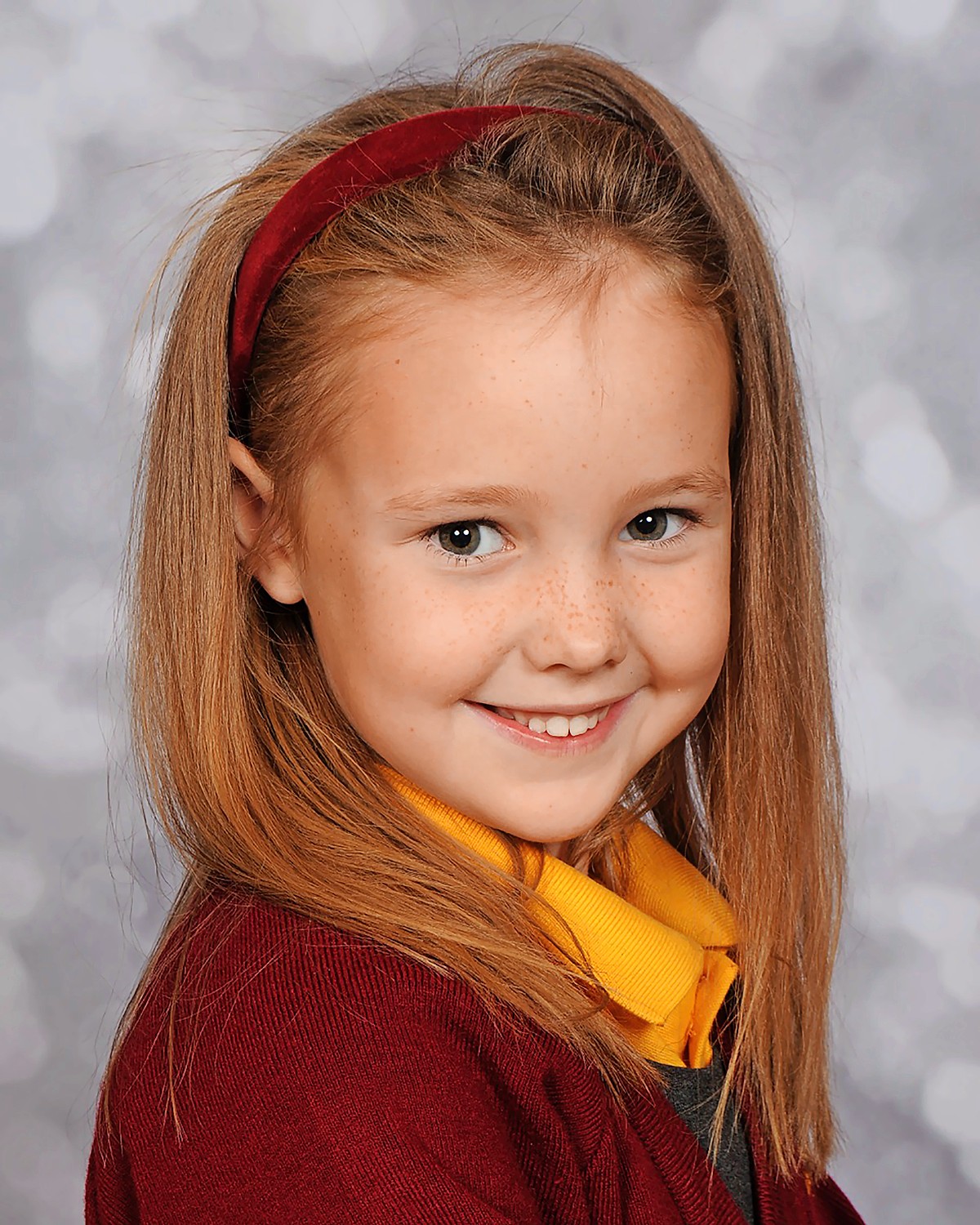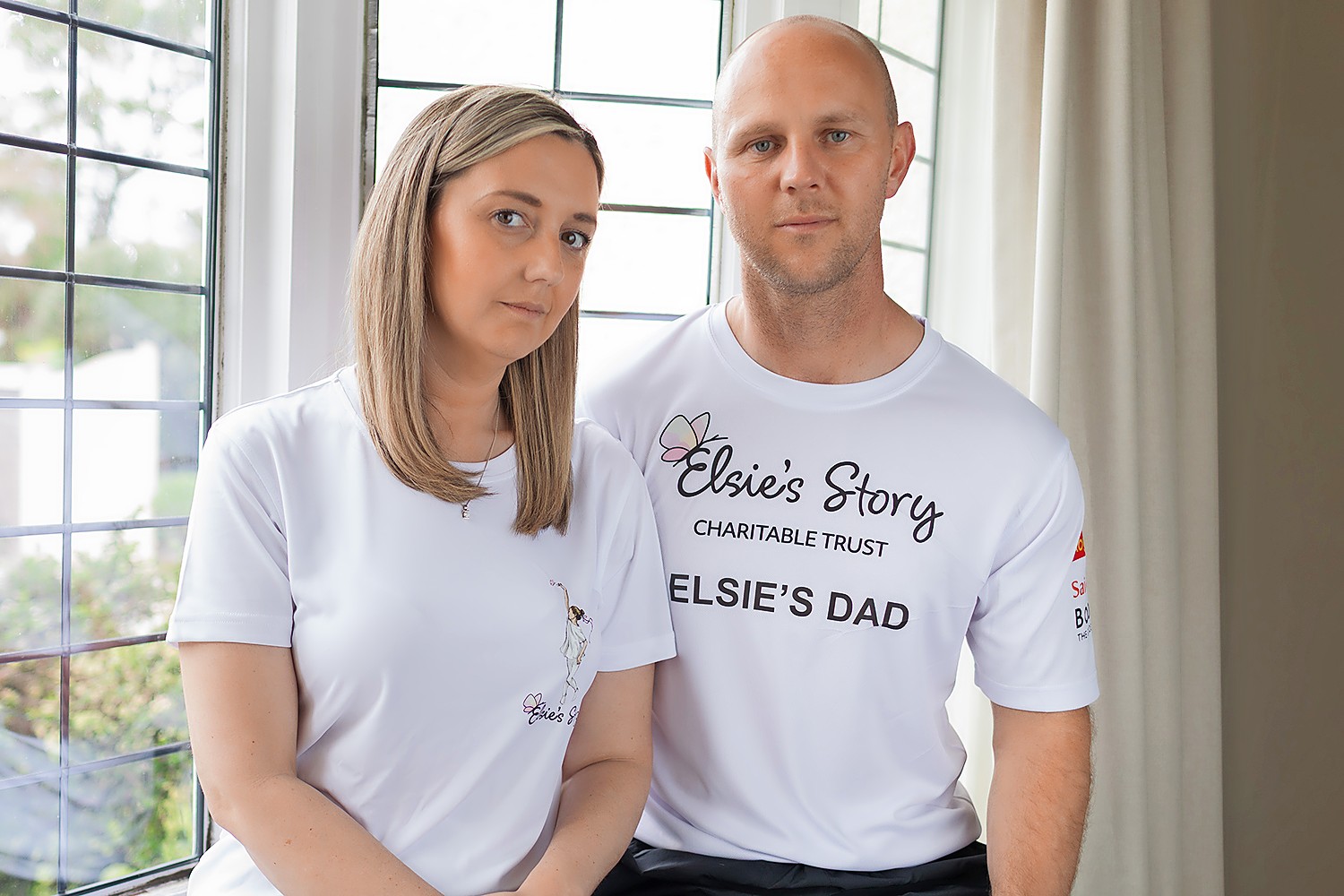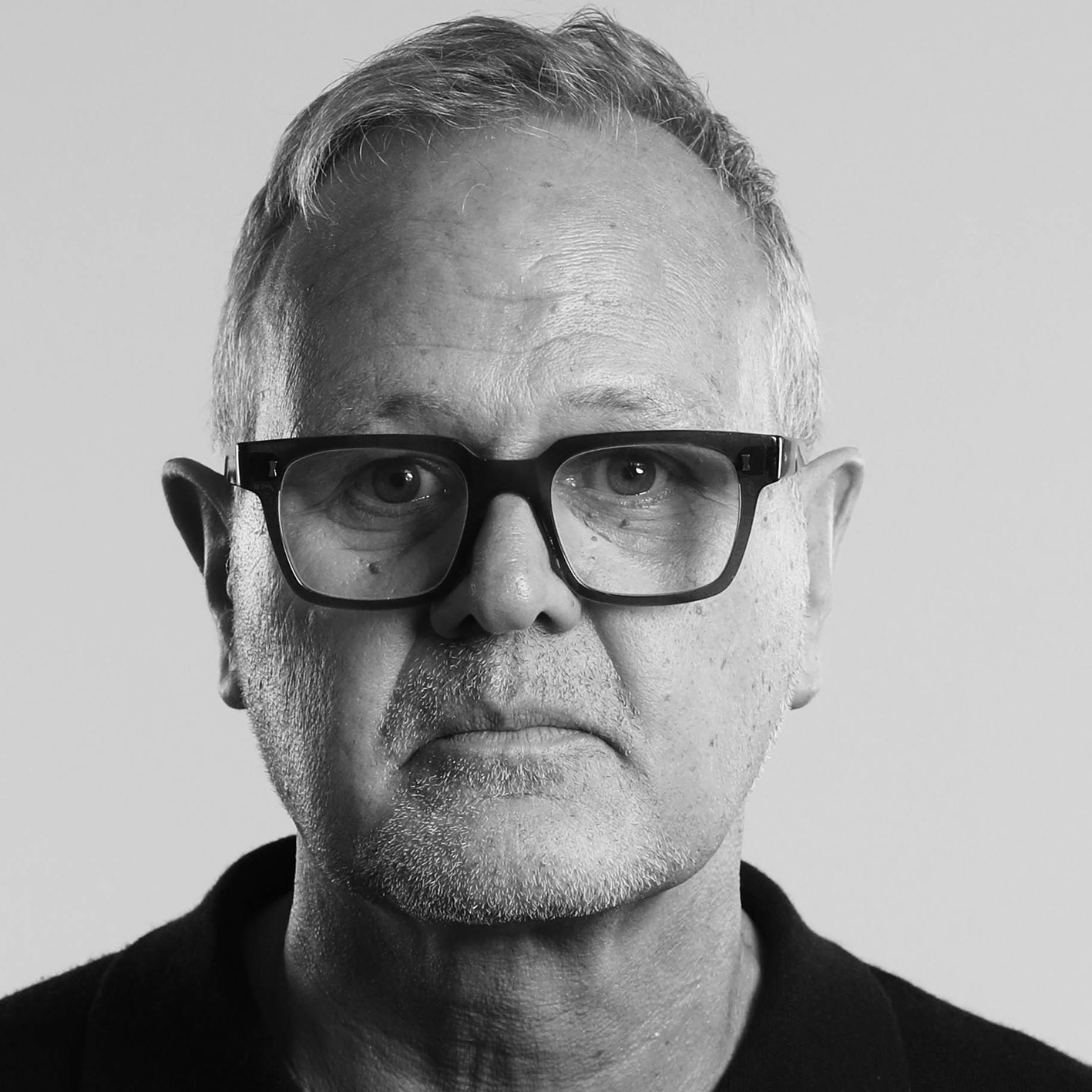A year ago last weekend in Southport, a seven-year-old girl watched with her father as more than 50,000 runners pounded through the streets of the capital. She told him: “Dad, I want you to run the London Marathon.”
Twelve months on, the dad is running. But the daughter is no longer here to see it. Many of this year’s 56,000 London Marathon entrants will be running today to assuage grief. Among them, wearing bib number 72056, will be David Stancombe, who says: “For some people it’s just running a marathon. But it’s so much more than that for me.”
Elsie Dot Stancombe, the daughter of David and Jenni Stancombe, was murdered, along with Bebe King, six, and Alice da Silva Aguiar, nine, in a knife attack on a Taylor Swift-themed dance and bracelet-making class in Southport in July last year. A further eight children and two adults were stabbed by 17-year-old Axel Rudakubana, who was jailed for life in January, with a minimum of 52 years. The dance class leader Leanne Lucas and a local businessman, Jonathan Hayes, were seriously injured.
These bare facts belie the aftermath faced by the families of the victims, those injured in the rampage and the trauma that was inflicted on many more children in Southport. To help others overwhelmed by such tragedies, Jenni and David Stancombe set up the Elsie’s Story trust.
David will run 26.2 miles through London, he says, to commune with his absent daughter. Jenni has found her own outlet via the trust. She says: “Elsie’s Story is everything. I feel it’s my way of being a mum to Elsie still.”
The Stancombes invited the Observer to Southport to discuss the future, recovery, and what they can do now to spread a little “light into darkness”.
Jenni reads out the trust’s pledge: “We refuse to let what happened define our little girl or our town. Instead, we choose to respond with love and positivity – the same love Elsie brought to us and those around her.”

A marathon may be a brutal test of physical endurance, but it can’t compare with the trial Southport families have faced these past nine months. The Stancombes’ loss weighs heavily on our conversation as unendurable pain struggles to transmute itself into something better than merely getting through each day.
David has a profoundly personal urge to fulfil Elsie’s wish that he should run in London. He says: “We were sitting on the sofa watching it and loving it. I asked – ‘Elsie, do you know how hard it is to run 26.2miles?’ She was like - ‘Dad, you can do it, no problem.’ I always thought I could do it, but I never thought I would do it.
“Whenever I’d go out for a run Elsie would come on her bike. Many a time when I’ve run from the house we’d go to the train station two or three miles away. There was a library in the train station, a children’s library, and we’d sit and read a book. Then we’d get our train tickets back to our house.
Newsletters
Choose the newsletters you want to receive
View more
For information about how The Observer protects your data, read our Privacy Policy
“Even the training runs I’ve done through the pine woods – so many times I’ve been through there with Elsie. She’s been on her bike with her helmet on, next to me. I’ll never ever forget her once saying to me after we’d been running for 25 minutes – ‘Dad, are you not tired?’”
The Southport attack on 26 children and two adults ignited riots across Britain. In the living room of the home they share with Elsie’s younger sister, Jenni and David remember police speeding along a nearby road into central Southport to deal with disorder that generated 1,280 arrests in 27 towns and cities. That night Jenni posted on social media in support of the police and urging the rioters to stop.
David says: “We were sitting in the kitchen with the doors open on a hot night, and the road near us into Southport was blue light, blue light, blue light” (‘and helicopters,’ Jenni adds). It was triggering. It was uncomfortable.”
In a statement announcing a public inquiry in January, the home secretary Yvette Cooper confirmed that Rudakubana had been referred three times to the terrorism intervention agency Prevent between December 2019 and April 2021, when he was 13 and 14.
Cooper identified other organisations that had failed to “identify the terrible danger that he posed”. She concluded that “too much weight was placed on the absence of ideology” in Rudakubana’s pattern of violence.
Rudakubana’s change of plea to guilty spared the victims’ families a protracted trial. But the public inquiry will stir their anguish once again. Managing it, every day, is rendered only slightly more bearable by their extraordinary courage and drive to help others.
“When you’re in shock you just go into the most bizarre thought processes,” Jenni says. “Within days we were like, ‘Taylor Swift has to know who Elsie is, we have to tell her who Elsie is, somehow.’ The second thing was, knowing Elsie had wanted Dave to run the London Marathon. Our sister-in-law’s boss went on a mission. She was messaging everyone for Taylor, for London.
“It must have been weeks after it happened when my sister-in-law came into the house and said ‘I’ve got something to tell you. Sit down,’” David says. “She said, I’ve got you a place in the London Marathon. I just jumped out of my seat. I shouted, ‘get in!’ I think I fist pumped. Then I realised I’ve actually got to run it.
“When I’m training I feel I’m with Elsie. Especially on these long runs I do on my own, I find myself talking to her, seeking comfort in that way. It’s when I put my shoes on and go out on my own that I feel close [to her].”
Cold, dark mornings are daunting but he credits his friends with helping him stick to a routine: “Sometimes I’ve got eight lads stood outside and they’re like – come on!”
No less poignant was an invitation to the victims’ families to a Swift concert at Wembley, and a meeting with King Charles, both of which raised their spirits but also amplified their loss. The Stancombes say they had a private and especially tender meeting with Swift before the show.
David says: “I ended up sitting with Taylor Swift’s brother for about an hour. He walked round Wembley to get [our younger daughter] some popcorn.”
Jenni adds: “They were the most genuine family you could ever meet. Her dad was amazing. As a family they were heartbroken for us. We were still very much in shock. For us to go to Wembley was such a big deal. It took a lot for us to go.”
If running has helped David, running Elsie’s Story has been Jenni’s coping mechanism: “When this happened not only did I lose Elsie, I lost that purpose. I didn’t know what I was doing, day to day. I was just like lost, completely,” she says.
“And then as Elsie’s Story’s started growing, that’s given me my run. Getting up, going on a laptop, replying to people, going out and talking to businesses, thinking about our objectives and the values of the charity, how we fundraise in the future. Our mission evolves as our charity does. We’re now able to look at funding vital services – long-term support for children in the community.
“We know there are children who aren’t the same children following what happened, and the parents and families don’t know what more to do with these children. Obviously, the council has been amazing with support for those directly impacted, but there’s only so much support available, as in accessible counsellors.
“We need to put something together with how we’re going to support this generation of children long term, because I’m really concerned about their wellbeing and mental health as they grow up.”
Thirty family members will support David in London and Elsie’s Story flags will flutter on Tower Bridge.
David says: “I’m going to wear Elsie’s little watch. I’ve got a little pink watch, I’ll wear that, and bracelets.
“Just being able to switch off and think about her – just being with my thoughts – I’ll carry her that way. I honestly really will. Or, she’ll carry me.”
Photograph Steve Morgan

